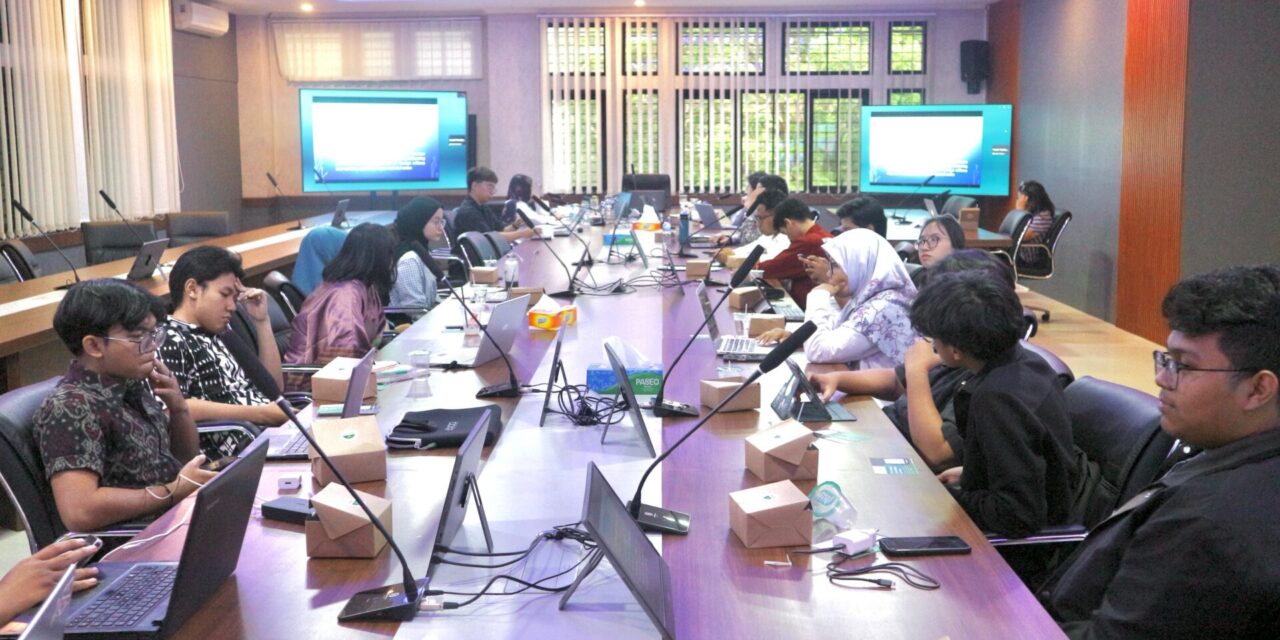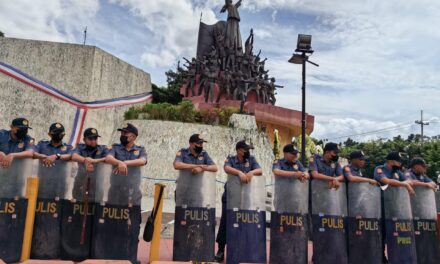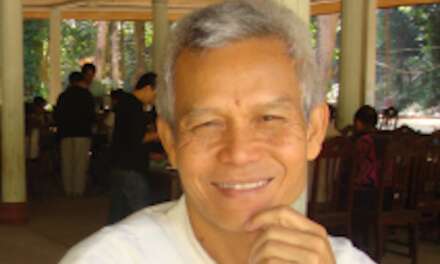It is an honor and privilege to be speaking here today together with my colleagues from Focus, sharing our perspectives on the legacy of Bandung, here, and in the company of young people.
On behalf of Focus, let me express our gratitude to Dean Dr. Sigid Suseno, and Deputy Dean Gusman Catur Siswandi for warmly accepting our proposal to co-organize today’s discussions—and to everyone here for joining us.
This year marks the 70th anniversary of the historic Bandung Conference. It also marks the 30th anniversary of Focus on the Global South. Over the past few months, as part of our year-long celebrations, we have published a series of articles reflecting the legacy of Bandung—not from the eyes of nostalgia for past glories, but rather from the lens of today’s global challenges.
There’s a strong feeling, particularly amongst progressive movements, that the world is at a critical conjuncture—marked by multiple crises: conflicts and wars, climate emergency, hunger and food insecurity, human rights violations, and the inability of global and multilateral institutions to offer real and just solutions. Transformation is not just urgent—it is necessary. And that, as the Chinese adage goes: crises present opportunities for change.
The chaos and disruption brought about by Trump, and mirrored around the world where we continue to see the ascendancy of the right, of authoritarianism, and the retreat from democracy, social justice and human rights, have shaken the status quo—but not towards the better. Instead, they are pushing us towards a situation that is more dire for the working class and marginalized people.
The shake-up of the global order that we are seeing today is driven more by hate, by othering, and a lack of empathy rather than the spirit of international cooperation. With oligarchs at the driver’s seat, capturing policies and blatantly flexing their economic power. The outcomes being touted are transactional—rather than transformational.
70 years ago, leaders from 29 countries in Asia and Africa emerging out of mass anti-colonial struggles, saw a key moment in their collective histories, and decided to come together to stake a claim at shaping their own future—and in doing so, to contribute to a more peaceful and just world anchored on the core principles: respect for human rights, sovereignty, territorial integrity, the recognition of the equality of all races and the equality of all countries large and small, peaceful resolution to conflicts, mutual interest and cooperation, and upholding justice and international obligations.
It is important to underscore here what my colleague Shalmali Guttal said in a recent speech on Bandung, that “these ideals were not dreamed up by the state leaders who participated in the Bandung conference; they emerged from and were shaped by the struggles of the peoples in Asia and Africa, who were at the forefront of struggles for liberation from colonialism and resistance to imperialism, and who gave their lives for liberty. These included peasants, Indigenous Peoples, fishers, workers and working classes, intelligentsia, women from numerous classes and backgrounds, local merchants, lawyers and many more.”
How this organic link—as author Vijay Prashad called it, “between masses in struggle and movements on the threshold of power”—was lost, perhaps offers both an explanation of what went wrong soon after but also what needs to be done to revive the Bandung Spirit.
It is also important that we realize that the very idea of former colonies coming together to imagine, and more importantly to strive for a self determined future, was contested and challenged at the onset, and faced with tremendous barriers, not to mention attacked violently.
As Prashad also noted, “the Bandung Spirit was largely wiped out by the 1980s, a victim of the violence against anti-colonial movements by the former imperialist powers (such as through coups, wars, sanctions) and the debt crisis imposed on these countries by the Western financial systems (whose value had itself been created through colonial theft)”.
The Asia-Africa conference tackled the most critical and urgent issues of its time—colonialism and neo-colonialism, the threat of wars and conflicts, poverty and marginalization. Many of these issues remain unresolved, and we see their manifestations in today’s world.
We see, for example, in the scramble for access and control over raw materials and critical minerals, the same use of coercive powers by the US, the EU, Russia either through direct aggression or sophisticated economic statecraft—using economic policy tools like free trade agreements, economic sanctions—to advance their strategic interests.
On trade and economic justice, we must continue to confront today a multilateral trading system that has served the interests of corporations—a system characterized by global supply chains—where developing countries are generally relegated to the lower end of the chain as a source of raw materials.
The question of neutrality and non-alignment in the face of power rivalries also continues to be very relevant. In our profile for example, of Carlos P. Romulo, a former general and diplomat who led the Philippine delegation at Bandung, we can draw the tensions within the conference on the question of neutrality. Romulo and other pro-western voices argued against the idea of not taking sides in the wake of a clearly ideological divide framed as a war between freedom and democracy on the one hand versus communism on the other.
The current geopolitical situation has been described as a “great-power rivalry and the weaponization of interdependence” (Carnegie Endowment).
A big motivating factor in shifting geopolitical dynamics continues to be the question of how to counteract the increasing power and influence of China. A big part of the global economic strategies of both the US and the EU is challenging China’s dominance (i.e. its massive Belt and Road initiative, its inroads into Asia and the Pacific through agreements like RCEP, its control over critical raw materials). Aside from China’s access and control over raw materials, its dual use strategy of utilizing technologies for both commercial and military purposes constitutes a threat to Western economies.
The growing militarism and conflicts across the globe also guve us pause; in the wake of ever increasing rise in military spending- estimated to have reached around $2.7 trillion in 2024, an increase of 9.4 per cent in real terms from 2023 and the steepest year-on-year rise since at least the end of the Cold War according to the Stockholm International Peace Research Institute (SIPRI).
The Palestine question remains a front and center issue, and represents a key unfinished business from Bandung. Bandung’s mixed legacy – while the final communique declared “its support of the Arab people of Palestine and called for the implementation of the United Nations Resolutions on Palestine and the achievement of the peaceful settlement of the Palestine question”, the actions didn’t go far enough. As the article in our series on Palestine by my colleague Galileo de Guzman Castillo pointed out, “the limitations of the gathering was made evident with the tensions, disagreements, and constrained bases of unity among the delegates”.
On the new issues, the move towards digital transformation, again with the corporate agenda paving the way, is another global challenge that people from the Global South should confront.
Artificial intelligence (AI) for example, is at the center of efforts to advance the digital transformation of the global economy. It has become such a critical component of how big economies like the US, the EU, and China are framing the future of the global economy that it has inevitably been framed as a security issue as well. The AI race brings with it ecological impacts as well—pushing up energy and water use, and land concentration.
A lot more critical issues from climate change, violence against women, attacks against gender rights, against human rights defenders, require a revival of the Bandung spirit.
We need to strengthen solidarity among peoples and movements, pushing for the transformation of our global order.
The spirit of Bandung must be grounded in reality, but also animated and activated by our common struggles for a better, more just world for all. Let me end by quoting from the overview piece that started Focus’ banding series, by Walden Bello with contributions from Shalmali Guttal, entitled ‘The Long March from Bandung to the BRICS’:
“Upholding the Bandung spirit means a commitment not only to free the country from colonialism and neocolonialism but to make sure the voices that were not heard at Bandung—the voices of women, peasants, indigenous people, the planet—are listened to and their interests are placed in the forefront of the agenda for change.”
Thank you. Looking forward to listening to the other presentations and comments, and reflections from all of you.
WATCH Post-Colonial Promises, Legal Realities: Bandung’s Legacy in Indonesia’s Laws and Student Movements:










